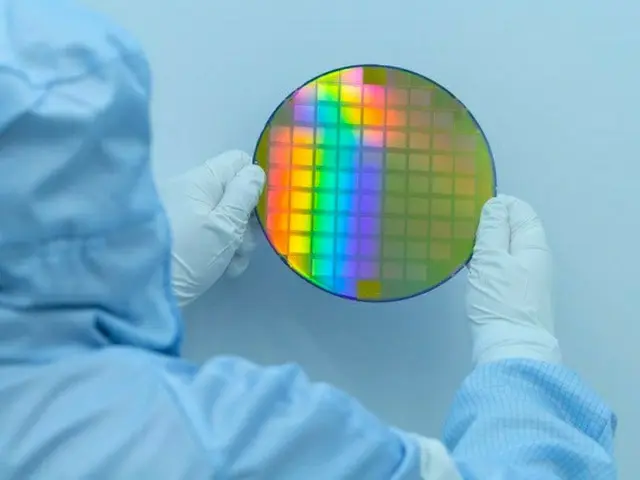At a press conference on the 9th, Choi Sang-mok, the chief economic aide of the South Korean presidential office, said, ``The US government will not take separate measures against the Chinese factories of Samsung Electronics and SK Hynix.''
We have made the final decision to supply U.S.-produced semiconductor equipment without any licensing procedures or deadlines." Prior to this, in October last year, the US government effectively banned equipment exports to Chinese semiconductor companies.
However, a one-year grace period was set for Korean companies such as Samsung Electronics and SK Hynix. Samsung Electronics has two NAND flash production factories in Xi'an and Suzhou, China.
The company operates a semiconductor back-end process (packaging) factory. SK Hynix has a DRAM factory in Wuxi, a back-end factory in Chongqing, and a NAND factory in Dalian.
Samsung Electronics and SK Hynix welcome this measure as it removes the uncertainty of operating factories in China.
I made my position clear. A Samsung Electronics official said, ``Through close consultations between the governments of each country, uncertainty regarding the operation of China's semiconductor production line has been largely eliminated.''
"We will work closely with the government and do our best to ensure the safety of the global semiconductor industry's supply chain." In addition, ``we will continue to closely communicate and discuss with companies.
I would also like to thank the governments of both Korea and the United States for their support." SK Hynix officials also said, ``We welcome the U.S. government's decision as we believe it will contribute to stabilizing the global semiconductor supply chain.''
``We will continue to faithfully comply with the laws and regulations of each country and do our best for the development of the global semiconductor industry.'' "We will continue to communicate closely with companies until such decisions are made."
We deeply appreciate the efforts of the Korean and U.S. governments, who have communicated with each other and held smooth discussions." The U.S. government recently announced that Samsung Electronics and SK Hynix's Chinese semiconductor manufacturing
The company has announced to the South Korean side its intention to designate the site as a "verified end user" (VEU). VEU is a type of blanket license that allows only pre-approved companies to export specified items.
It's a permission method. Once included in VEU, there is no need to obtain a separate permit, meaning that the application of U.S. export controls is effectively postponed indefinitely.
In October last year, the U.S. government announced semiconductor export control measures aimed at China, saying,
Equipment and technology that can produce logic chips (16 nanometers to 14 nanometers or less), "DRAM of 18 nanometers or less", "NAND flash of 128 stages or more", etc.
If the technology is to be sold to a Chinese company, a license must be obtained. However, regulations were suspended for one year for the factories of Samsung Electronics and SK Hynix in China.
Therefore, there has been a lot of interest in the US's follow-up measures that will be applied after the grace period ends in October of this year. Against this
However, the South Korean government and industry have been in close consultation with the US government over the past year to resolve uncertainties surrounding Samsung Electronics and SK Hynix's factory operations in China.
Regarding the U.S. government's decision to supply equipment to a South Korean company without separate permission, one industry source said,
"This is proof of trust in Korean semiconductor companies." Samsung Electronics has 40% of its NAND production at its Xi'an factory, and SK Hynix has 40% and 2% of its DRAM and NAND production, respectively.
0% will be produced at factories in Wuxi and Dalian. Both companies procure some of the goods needed to operate their factories in China from the United States.
2023/10/10 06:28 KST
Copyrights(C) Herald wowkorea.jp 104

